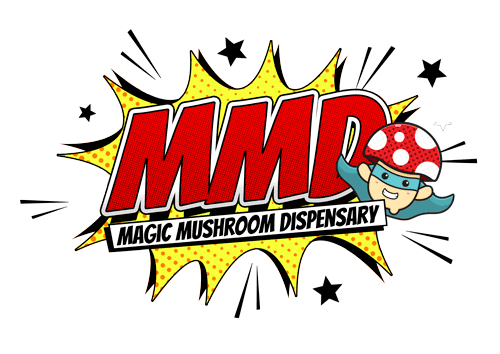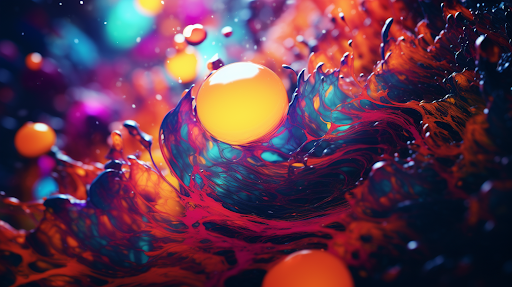Magic Mushrooms
Drawing comparisons | DMT and other psychedelics
Psychedelic drugs have always been a subject of fascination and intrigue, offering a unique glimpse into the depths of human consciousness. Among these mind-altering substances, dimethyltryptamine (DMT), psilocybin (found in magic mushrooms), and lysergic acid diethylamide (LSD) are often considered as the crown jewels of the psychedelic realm. In this comprehensive article, we explain the effects, experiences, and therapeutic potential of these classic psychedelics while highlighting their similarities and differences.
Key Takeaways
- DMT, LSD, and psilocybin are the main hallucinogenic drugs that offer a wide range of therapeutic benefits. They produce visual hallucinations, increased emotional intensity, an altered sense of self, and sometimes mystical experiences.
- DMT is the most intense but lasts a short amount of time.
- The legal status of psychedelic drugs differs from place to place.
- These are subjective drugs. Every person reacts differently to them, so do not expect the same experience as anyone else or as your previous experiences.
Psychedelic Drugs and Their Effects
Psychedelic drugs, commonly referred to as hallucinogenic drugs, belong to a class of substances known for their ability to induce a psychedelic experience of profound alterations in perception, cognition, and consciousness. These substances can engender a wide spectrum of experiences, from visual hallucinations to introspective journeys into the self.
Classic psychoactive drugs, such as DMT, psilocybin, and LSD, stand apart from other psychoactive substances due to their unique capacity to create transformative and introspective experiences. These substances are often associated with expanded consciousness, mystical experiences, and profound insights.
Psychedelic Experiences With DMT and Other Substances
The beneficial effects of DMT and other psychedelic substances are extremely similar. They all offer a portal into an other-worldly experience that alters your sense of self, your emotions, and your visual perceptions. However, it is important to recognize that these beneficial effects are all subjective and everyone has a subjective experience with hallucinogens. Therefore, if your previous experience involved interactions with a transcendent world, it does not necessarily mean your next will.
Changes in Visual Perception
Hallucinogenic drugs are known for inducing a wide array of effects and experiences. Among these, the visual effects stand out prominently. They catapult users into a realm of intricate and vivid geometric patterns, often described as both mesmerizing and surreal, greatly altering users’ visual perception. These visual hallucinations can be profoundly intense, captivating the senses in a manner unique to classic psychedelics.
Altered Sense of Self
Another striking aspect of classic psychedelics is the altered sense of self. Users frequently report a dissolution of their ego, a fundamental shift that leads to a profound sense of interconnectedness with the universe. This dissolution of self often blurs the boundaries between the individual and the external world, contributing to a sense of unity and oneness.
Emotional Intensity
Emotional intensity is another of the acute effects of classic psychedelics. While they can amplify both positive and negative emotions, the intensity of these emotions can be overwhelming. Users may find themselves navigating the depths of joy, awe, or even intense fear, creating a rollercoaster of emotional experiences within a short timeframe.
Mystical Experiences
Perhaps most intriguing is the mystical experience and spiritual significance often associated with psychoactive drug trips. Many users describe encounters with otherworldly entities or transcendental realms, leading to a profound sense of the mystical and spiritual. You are most likely to experience spiritual significance and mystical adverse effects with DMT as opposed to one of the effects of psilocybin or LSD.
These experiences have sparked discussions about the potential therapeutic and transformative power of classical psychedelics in the context of psychedelic-assisted therapies, making it a subject of increasing interest among researchers and healthy volunteers alike.
Differences in Duration and Intensity of DMT and Other Psychedelics
DMT and other psychedelics vary in terms of their duration, intensity, and overall effects. It’s important to note that individual experiences can differ due to factors such as dosage, set and setting, and an individual’s unique physiology and mental state. Here are some general differences in duration and intensity for DMT compared to other psychedelics like LSD, psilocybin (magic mushrooms), and MDMA:
Duration
- DMT: DMT is known for its incredibly short duration of effects, typically lasting around 5 to 20 minutes. The onset is rapid, and the peak effects are intense but brief.
- LSD: LSD has a relatively long duration compared to DMT, with effects typically lasting 8 to 12 hours. The onset is usually within 30 to 90 minutes after ingestion.
- Psilocybin: The effects of psilocybin typically last 4 to 6 hours. Onset usually occurs within 20 to 40 minutes after ingestion.
- MDMA: MDMA effects last around 4 to 6 hours. The onset is relatively quick, usually within 30 minutes to an hour after ingestion.
Intensity
- DMT: DMT is often described as one of the most intense psychedelic experiences due to the rapid onset and the powerful and immersive hallucinations, including intense visual and auditory distortions, out-of-body experiences, and encounters with entities.
- LSD: LSD is known for its intense and profound hallucinations, altered perception of time and reality, and enhanced sensory experiences. The intensity can vary based on the dose and individual sensitivity.
- Psilocybin: Psilocybin produces intense visual and auditory hallucinations, alterations in perception, and a strong sense of connectedness with one’s surroundings and others.
- MDMA: MDMA is not classified as a classic psychedelic but as an empathogen and entactogen. It typically produces feelings of empathy, emotional openness, and increased sociability, along with heightened sensory perception. The intensity can vary based on the dose and individual reaction.
Therapeutic Potential of DMT and Other Psychedelics
Psychedelic-assisted therapies have gained significant attention in recent years thanks to the therapeutic benefits of classical psychedelics. Their antidepressant effects, ability to reduce anxiety in patients, and beneficial psychological effects allow them to be leaders in psychedelic therapy. Below, we break down the therapeutic potential brought on by the psychedelic experiences of these drugs.
Therapeutic Potential of DMT
Dimethyltryptamine, known as the “spirit molecule”, is a drug that has gained attention for its therapeutic potential in the realm of psychedelic therapy. In South America, indigenous communities have used DMT-containing plants like ayahuasca for centuries in spiritual and healing ceremonies. In a therapeutic context, a single dose of DMT has demonstrated the capacity to induce profound and transformative experiences that can have lasting therapeutic effects.
One of the notable therapeutic aspects of DMT is its potential to induce spiritual significance and personal meaning. Many individuals who undergo DMT-assisted therapy report encounters with otherworldly entities or transcendental realms, leading to a sense of interconnectedness with the universe. These experiences can offer individuals new perspectives on their lives, foster personal growth, and provide deep insights into their existence, which is often helpful for its antidepressant effects and for treating anxiety disorders.
Therapeutic Potential of Psilocybin
Psilocybin, the active compound in magic mushrooms, has shown remarkable potential for psychedelic therapy. Administered in a controlled and guided setting, a single dose of psilocybin can induce profound therapeutic effects. Studies have demonstrated its capacity to alleviate symptoms of depression, anxiety, and even substance use disorders. This has led to growing interest in psilocybin-assisted therapy for various mental health conditions.
The acute effects of psilocybin include visual hallucinations and altered perceptions, but it is the psychological effects that hold therapeutic promise. Psilocybin can foster emotional release, helping patients confront and process deeply ingrained emotions and traumas. Moreover, it often leads to mystical and spiritual insights, offering individuals a new sense of personal meaning and connection with the universe. These effects make psilocybin-assisted therapy a promising avenue for addressing a range of mental health challenges.
Therapeutic Potential of LSD
LSD, though originally synthesized for different purposes, has also demonstrated therapeutic potential in recent years. Administered in a controlled environment, a single dose of LSD can lead to transformative experiences with lasting therapeutic effects. Research has shown that LSD-assisted therapy can be effective in reducing anxiety in patients with life-threatening illnesses and addressing other mental health conditions.
The therapeutic effects of LSD go beyond its acute visual and perceptual alterations. Patients often experience profound insights into their thoughts, emotions, and the nature of existence, leading to a shift in their perspective on life and their mental well-being. This aligns with its potential for reducing anxiety in patients, as the experiences can provide patients with a newfound sense of personal meaning, and connectedness, and a reduction in their anxiety symptoms.
Legal Status and Regulation of DMT and Other Psychedelics
The legal status and regulation of DMT and other psychedelics vary significantly across different countries and jurisdictions. In South America, for example, there is a long history of traditional use of psychedelic substances like ayahuasca, which contains DMT. These practices have been protected under the law in certain countries such as Brazil and Peru. However, the legality of DMT and other psychedelics for recreational or therapeutic use varies widely.
In recent years, there has been growing interest in the therapeutic potential of psychedelics, including DMT. Research studies conducted by reputable institutions have shown promising results in using psychedelic-assisted therapies to treat mental health conditions like depression, anxiety, and PTSD. Despite these positive findings, regulatory frameworks surrounding the use of psychedelics remain complex. The dosing guidelines for psychedelic drugs vary depending on the specific substance being used.
Buy Psychedelics Online
Magic Mushroom Dispensary offers a diverse range of products, catering to the needs of those seeking unique and transformative experiences. Our product selection includes psilocybin products, such as magic mushrooms and microdoses, allowing individuals to explore the depths of their consciousness.
Additionally, we provide DMT products, offering a portal to intense and spiritual journeys. For those interested in the calming and therapeutic properties of cannabis, we also offer an assortment of cannabis products.
Frequently Asked Questions
Yes, there is a growing body of research indicating the therapeutic potential of psychedelic drugs in treating conditions like depression, anxiety, PTSD, and addiction. This is often done in controlled, clinical settings.
A bad trip refers to a negative or distressing experience while under the influence of a psychedelic drug. It can involve extreme anxiety, paranoia, and fear.

